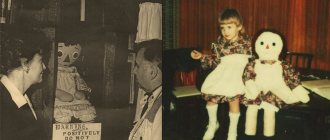Psychological disorders such as neuroses are often found in children. The largest number of cases of disorders is recorded in the age group that includes schoolchildren and adolescents.
Neurasthenia manifests itself in irritable weakness. The child may have a tendency to react with anger or irritation, as well as instability in the face of various mental stresses. Neurotic disorders are often accompanied by autonomic disorders. Vascular fainting, appetite and sleep disturbances, frequent vomiting and headaches may occur.
Factors that can increase the risk of neurotic disorders are:
- excessive loads. Physical activities can also cause neurosis, but first of all you need to beware of intellectual overload. Classes in specialized schools with various specializations, visiting various clubs and sections after school - all this can provoke the appearance of asthenic neurosis in a child;
- unfavorable family environment, quarrels and divorce of parents;
- mistakes of parents in the educational approach. Excessive demands, the presence of unnecessary and strict restrictions.
Teenagers are most susceptible to the development of neuroses. This is due to the characteristics of this age period. Difficult relationships with peers at school and acute conflict situations can have a negative impact on the fragile psyche of a child.
Classification of neurotic disorders in children
“Soul accumulator”: how neurosis appears in a child
Imagine that there is a vessel in the child’s soul. When a child feels something but cannot express it, the feelings fall inside the vessel.
Seven-year-old Pasha is afraid to sleep in the dark, but his parents call him a coward and turn off the light. The child stops talking about fear, but is still afraid. Every night, fear drop by drop enters this vessel (let's call it the “spiritual storage tank”). It inevitably overflows - and the child wakes up in a wet bed.
Question and answer: the child is afraid to sleep alone in the room
Masha is a chubby angel. Mom thinks differently: “Stop eating, being slim requires sacrifices! If you want to be beautiful, no buns.” Masha is torn in her soul: she doesn’t want to see herself as fat, and she wants sweets. “Oh, I’ll never be beautiful,” Masha thinks and twirls her hair. And suddenly he notices that there is a bald patch above his ear.
Three-year-old Misha recently started kindergarten. He is naturally nimble and active, loves to run and play. The teacher does not support the desire to move and scolds the disobedient child in front of everyone. The boy experiences many feelings: anger at the teacher, resentment that he was not allowed to run, shame. He doesn’t dare tell the teacher everything he thinks. She can punish, and my mother says that we must obey. The drive can't cope. After a quiet hour, the teacher notices that the baby has bitten half of his nails.
Most often, the child’s storage is “poured” from the overflowing storage of close adults who do not notice or do not understand this.
Pasha's dad himself was called a coward as a child. Even now he is afraid to express everything he thinks to the boss who bothered him. Therefore, he takes it out on his wife and children. But he will never admit it, not even to himself. He thinks that his loved ones are behaving incorrectly.
Parents' fears that are passed on to children
Masha’s mother does not have a good personal life. It seems to her that she is just worried about the fate of her daughter. But the accumulated experiences spill out in cruel words and actions towards her. Result: the child has neurosis.
Misha's teacher doesn't just scold the child. He gets it for her fatigue, the sick colleague for whom she is replacing, the manager and her own smart son, a moron. And the boy’s mother was also bullied in the garden as a child, and she is afraid of a repetition.
Would it occur to these adults to connect their behavior with the problems of their children?
The second large group of reasons is severe stress, from which no one is immune, from which the most loving parents cannot protect. This includes, for example, the illness or death of a loved one.
“Mom, am I going to die?”
In practice, the reasons can be combined: a difficult time in the family, the child gets it from his parents, and the teacher (teacher) adds the last straw.
Treatment and prevention of neurotic disorders in children
Correction of such mental conditions as neurotic disorders in children is carried out comprehensively. In this case, consultation with various specialists is necessary. Only with the joint work of a pediatrician, neurologist, psychologist and psychiatrist is successful treatment of the disorder possible.
The participation of parents is of great importance in normalizing the mental state of the child. They should notice changes in the child’s behavior and immediately contact specialists. It is important to understand that ignoring such a dangerous disease as neurasthenic disorder can lead to even more serious conditions. Therefore, it is important to start treatment as early as possible. The Psychoendocrinology Center employs experienced specialists who apply the latest achievements in the field of psychiatry and psychology in their practice.
During the treatment process, much attention is paid to psychotherapeutic measures. Family psychologists at the Center work not only with young patients, but also with their parents and other family members. Medicines can also be used to correct neurotic disorders in children. They are prescribed in extreme cases, when taking medications is justified by the patient's condition.
Neurosis is a dangerous and insidious disease; a lot of effort must be made to completely cure it. It is much easier to prevent the appearance of neuroses. The risk group includes impressionable children who are prone to various kinds of anxiety and fears. Parents should pay attention to the child and his needs, and if the first signs of neurotic disorders appear, contact the specialists of the Psychoendocrinological Center. All patients are guaranteed complete confidentiality!
Symptoms similar to physical (somatic) illnesses
Neurosis can also manifest itself in the form of bodily ailments and unclear symptoms:
- I often have a headache or stomach ache.
- The child coughs constantly, the cough worsens with excitement.
- Does not have time to run to the toilet (over three years): urinary incontinence (enuresis), fecal incontinence (encopresis).
- He doesn't eat well.
- Sleeps restlessly.
- Stutters.
Neurosis can be distinguished from physical illness by three criteria.
Doctors didn't find anything serious. The pediatrician, therapist, neurologist, endocrinologist do not find any serious abnormalities in the body, the tests are in order or with minor changes.
The child is stressed. After a detailed conversation with the parents, it turns out that the child is experiencing stress and does not know how to cope with it.
If the stress has passed, the symptoms disappear. Or another option: the stress continues, but the child has learned to cope with it and is now less worried. Then the neurosis will also pass. For example, the parents explained that the problem was with the teacher, and not with the child, and the child calmed down.
These are all symptoms of neurosis in children, thirteen completely different manifestations. What's in common?
Prevention
By considering each factor that becomes a stimulus for the phenomenon of neurological abnormalities, it is possible to develop effective prevention. The most popular recommendations are:
- Development should not lag behind the evolution of peers. Otherwise, he will feel inferior, this will lead to complexes. To do this you need to work with him.
- There should be a favorable environment in the family. You can count on positive success only if there are no scandals at home.
- In the modern world, a change in consciousness occurs under the control of the Internet and gadgets. The strongest natural antidepressant is prolonged exposure to fresh air and active recreation.
- Periodic frank conversations will allow him to promptly identify fears and help him overcome them.
In most cases, no prophylaxis is required. If your blood does not show any reaction to the influence of the surrounding world, stressful situations, then it is enough to provide a favorable environment at home and psychosthenia will not appear.
If appropriate therapy was carried out independently under the supervision of medical staff in youth after 8 years, then it will disappear almost without a trace. If the indicators appeared in childhood from 3 to 6 years, then they appear in the period 8-11 years. Obsessive treatment can be carried out at any age, but later withdrawal is more difficult.
Even in the most difficult cases, one should not forget that psychosthenia is treatable and in almost all cases its indicators are reversible. A preschooler can fully recover and return to normal life. Various clinics have developed their own methods, which are characterized by their own characteristics. Therefore, before applying, you need to study the plan in detail.
It is much easier to prevent than to eliminate it later, so it is necessary to create the most comfortable living conditions. Otherwise, the existing pathology will not be treated and will lead to complications.
Outpatient program, remission
The work of the psychotherapist is coordinated with the identification of the mood. The complication was first described in 1617 and today a project is used that is highly effective. The outpatient program contains the following features:
- After a certain amount of inpatient treatment, the course is implemented in an outpatient setting. This stage is required for the baby to learn and get used to life in his family.
- An important prerequisite is the lack of a tense situation. If quarrels are repeated, the project is disrupted.
- Parents and experts pay attention to activities to restore social connections. The lack of friends leads to the fact that the problem will develop into a syndrome.
Taking certain herbs and foods, and other folk methods speed up remission. Recovery is facilitated by:
- Taking a calming herb, such as valerian or lemon balm. Antidepressants are prescribed exclusively by an expert and are not recommended to be given on your own.
- Before bedtime, you can give your baby milk and honey. A similar combination is also calming.
- You can take a bath with sea salt, mint or lavender. Warm water has a relaxing effect on muscle tissue.
- We need to spend more time with the baby. In this case, you should choose some game or activity in which he can achieve success.
By changing the atmosphere at which the blood vessel stays, for example, during the holidays, you can contribute to its treatment. When you move to another area for temporary residence, your social circle changes.
The little child's physical activity is controlled for his safety. Some measures lead to injury.
Causes of neurosis
The basis for the development of the disease is the psychological vulnerability of adolescents during puberty. Because of this, the perception of reality can be distorted, and young people perceive everything with a degree of criticism or sentimentality. The reasons that push towards neurosis can be:
- conflicts in the family;
- lack of attention;
- parental divorce;
- the arrival of a younger child;
- excessive demands from adults;
- unrequited love;
- ridicule from classmates;
- changes in appearance;
- loss of a loved one;
- preparation for exams, etc.
Kinds
All neuroses are usually divided into two large groups: general and systemic.
Are common:
- obsessive-compulsive neurosis;
- neurasthenia (astheno-neurosis);
- hysterical neurosis.
The following forms of reactive states are distinguished separately:
- anxiety neurosis;
- depressive neurosis;
- hypochondriacal neurosis.
System:
- neurotic enuresis (unconscious urination);
- neurotic encopresis (fecal incontinence);
- neurotic sleep disorders;
- neurotic appetite disorders (anorexia);
- neurotic stuttering;
- pathological habitual actions (when a child sucks fingers, bites nails, unconsciously touches the genitals, plucks hair, shakes or nods his head, etc.).
Progression and consequences of non-treatment
There are quite a few methods, the choice is made in accordance with the results of the survey. Progression in childhood is rapid, since the personality has not yet been formed.
Any neuropsychic childhood crises tend to be compensated over time. No diagnosis is considered a life sentence, but if the difficulties are not addressed in a timely manner, then it will become the culprit for interruptions in consciousness and the formation of tics.
As a rule, hysteria is considered a sign of stressed well-being. In adults, annoying measures persist because they are the culprit of deeper dysfunction.
Recovery in hospital (round the clock, complex, tests)
The arrival of the first differences becomes the motive for seeking help from a neurologist. The specialist examines and examines the baby. Drug treatment is prescribed extremely rarely, in most cases for cellular and other interruptions.
The diagnosis of “neurosis” is carried out in several stages. The sequence is as follows:
- To find the required answer, central nervous system destruction and genetic defects are first tested. This kind of precedent is extremely rare. Genetic abnormalities can only be identified through complex examinations. Therefore, you need to contact a clinic that specializes in solving this kind of difficulty.
- Some signs indicate the consequences of injuries or the onset of other serious illnesses. Examples are severe influenza, encephalitis, traumatic brain injury and others. At this stage, the disease associated with the dysfunction is determined, for which different tests and analyzes are carried out.
- The most common difficulty is discord that arises due to dramatic situations. Even conflicts in the yard or frequent quarrels influence her. The assessment is made through ongoing communication.
Collection of tests is carried out to search for ailments, which turn into a motive for the release of mental disorder.
Psychotherapy is the most common method. The hospital has the following characteristics:
- The patient is under constant observation.
- Groups are being created. Communication with peers has a beneficial effect on consciousness.
- The drug is used in extreme or neglected cases.
Inpatient treatment is prescribed in isolated cases when the home does not provide the proper environment. After the difficult period has passed, the child will be able to return to his normal existence.
Origin of the disease
The emerging personality of a toddler depends on many internal and external factors, which, in turn, under certain circumstances cause a similar disease. The main reasons are:
- Socio-cultural are related to the problems of life in large cities. The occurrence of psychoneurosis can be associated with a lack of the required amount of time for proper rest.
- Socio-psychological ones are associated with emotional isolation of the baby, for example, long house arrest or conflicts. Another difficulty occurs in prosperous families. Only group therapy will create positive conditions for the formation of children.
- Socio-economic arises in the absence of the required conditions for comfortable living. At the same time, mothers often go about their own business and do not devote the required amount of time. Also, the child may lack things that his peers have. Recently, socio-economic has become much more common.
Somatic pathologies that have a direct impact on the nervous system are quite important. Increased sensitivity to psychological influences determines that the child reacts sharply to even minor control from the outside world.
Recently, doctors are increasingly paying attention to the fact that a symptom of prolonged use of the Internet disrupts the central nervous system. This is associated with a large flow of various information; it is almost impossible to protect children from sources of fear and emotional distress.








